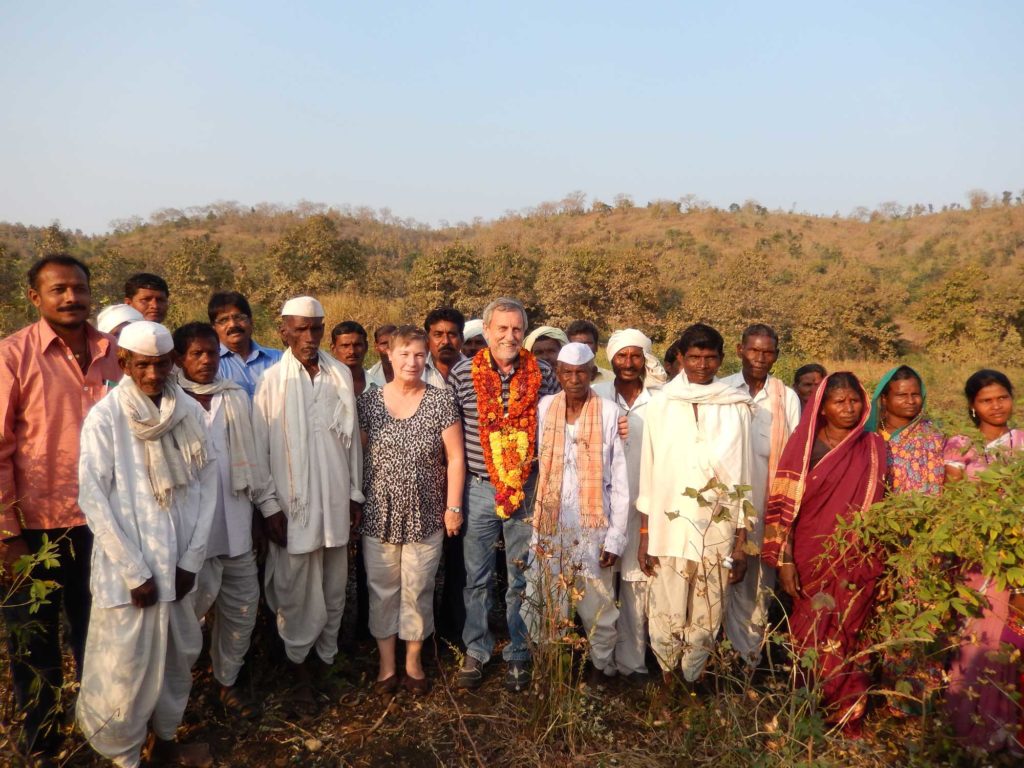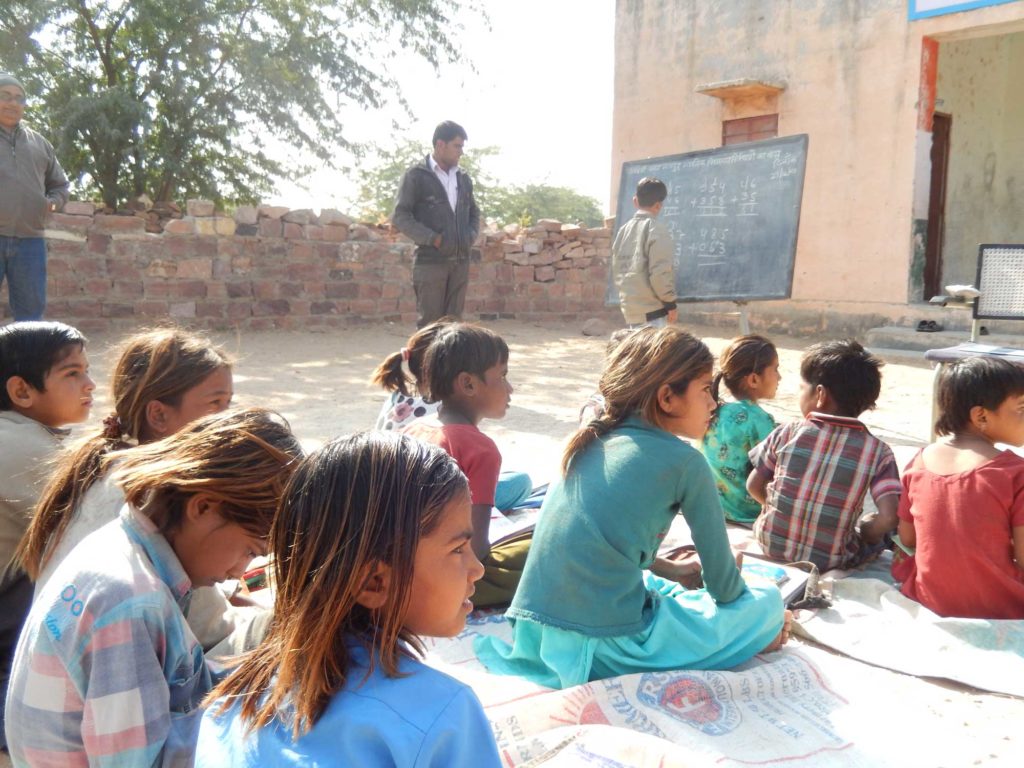
In 2006, we made a request to World Vision – please find us a place-based initiative to engage with as a family; something that enables us to understand the history of a place and the efforts of people to effect their own change over time. They came back to us with the Vidarbha Farmers’ Livelihood Project (VFLP).
In Vidarbha, cotton farmers were dying by suicide in extremely high numbers (1 every 8 hours, according to one estimate). Contributing factors included droughts, pest infestations, expensive supplies, a lack of agriculture services, and predatory lenders. With our support, World Vision has worked to enhance the economic and psychosocial conditions of farmer households so they can recover hope and take adequate care of their families while also paying off debts.
Since the project’s inception, zero reported farmer suicides have occurred in the target area. We wanted to see for ourselves, so over Christmas break we took 25 family members with us and drove out to Ukandapod village. During a very celebratory presentation, they shared their stories of success through stories, song and dance. We then toured their homes, the small businesses they had started, the village school, and the surrounding fields teeming with a variety of sustainable food crops.
The joy of this visit was made even more poignant by other visits we made to other parts of India in subsequent days. In Mumbai, we visited the slums, including a small drop-in center for preschoolers and a safe house for girls rescued from the brothels. In Jodhpur, we visited the mining fields, where families lived and died mining such stones as granite and marble. We understood the link between these struggles and the pressures to migrate. When farming families lose all hope on the land and decide to migrate into the cities in search of work, a lifeline is severed. They become islands adrift and are vulnerable to all manner of exploitation and abuse.
We returned from India with a renewed sense that we are called to stand in solidarity with farming communities, to equip people to stay on the land, to be ever better stewards of their resources as a matter of survival and flourishing for future generations. As we care for the land, so the land cares for us.





